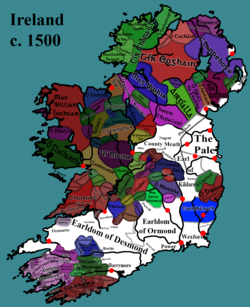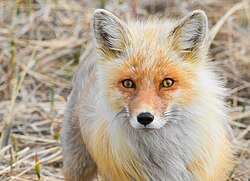Fox surname Ireland
The main origin of the Fox surname in Ireland is Ó Sionnaigh, a respectable clan from the Irish Midlands who were rulers of Tethbae and later barons of Kilcoursey. They descend from Niall of the Nine Hostages son, Maine of Tethba of the Southern Uí Néill. . [5] [6] [7] [8] [9] [10] [11] Other possible Fox surname origins in Ireland include Mac an tSionnaigh, de Bhosc and Mac Seancha. [12] [13] [14]

